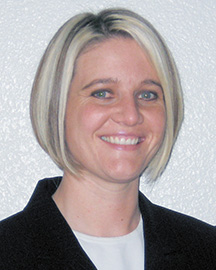 Futures For You
Futures For YouQ&A
 Futures For You
Futures For YouInside The Futures World
Want to find out how the futures markets really work? Carley Garner is the senior strategist for DeCarley Trading, a division of Zaner Group, where she also works as a broker. She authors widely distributed e-newsletters; for your free subscription, visit www.DeCarleyTrading.com. Her books, Currency Trading in the Forex and Futures Markets, A Trader’s First Book on Commodities, and Commodity Options, were published by FT Press. To submit a question, post your question at https://Message-Boards.Traders.com. Answers will be posted there, and selected questions will appear in a future issue of S&C.
COMMODITY POOLS
What is a commodity pool? Is this a viable way to get into the commodity markets?
Commodity pools are essentially the mutual funds of the futures industry. By definition, a commodity pool is a private investment structure, typically a limited partnership, that combines the contributions of multiple investors to be used in futures and option trading in the commodity markets. Simply put, a commodity pool is a fund that operates as a single entity to speculate in the futures markets on behalf of the fund’s investors. Another way to look at a commodity pool is as a specialized hedge fund that deals only in futures, or options on futures, traded on organized futures exchanges and is registered as such with the appropriate US regulators.
The term “commodity pool” is a legal word assigned to this type of fund by regulators. Commodity pools are regulated by the Commodity Futures Trading Commission (CFTC) and the National Futures Association (NFA). This is in stark contrast to traditional mutual funds, or even hedge funds, which answer to the Securities Exchange Commission (SEC).
The person, or entity, responsible for managing the commodity pool’s assets and the trading activity within the fund is referred to as the commodity pool operator (CPO). A CPO differs greatly from the alternative form of managed futures, a Commodity Trading Advisor (CTA), in the manner that client funds are allocated and traded. As mentioned, a CPO pools investor funds to create a single trading account. Trades are executed within the commodity pool account with profits and losses allocated to participants based on the size of their contribution to the fund. A CTA, on the other hand, instructs his clients to open individual accounts; any trade executed by the advisor on behalf of his clients is done so directly in each individual client account.
Investors of commodity pools typically opt to participate in the fund with the belief they will have access to markets and trading strategies that they might not otherwise be able to afford based on their contribution size. Similarly, the pooled structure enables investors to share market risk with other investors, making it viable for smaller investors to participate in relatively high-risk trading strategies. The pool investor’s risk is generally limited to the amount of his or her contribution to the fund, but any venture into such an arrangement should include confirmation of risk details.
Although pools can be a great way for small investors to get involved in the commodity markets with relatively little trading capital, there are some glaring drawbacks to pooled arrangements compared to a more traditional CTA-managed account.
Lack of transparency
By nature, commodity pools involve rather complex accounting. Not only are investors splitting the risk and reward of trading ventures, but they are also sharing in the burdens of management and administrative costs. Further, because investor monies are commingled with that of others, there is little transparency in the process of when, how, and where your funds are being traded. For example, an investor opting for a Commodity Trading Advisor would open a trading account, fund it, and then hand the reigns over to an account manager. From there, the investor receives daily statements displaying trading activity and account balances. But in the case of a pool, an investor simply writes a check and hopes the commodity pool operator acts with integrity. Other than a periodic statement issued by the pool itself, there is little information available to track trading activity and to ensure the money is being allocated properly.
As a direct result of the lack of transparency, commodity pools are frequent outlets for fraud to occur. While most CPOs operate with high levels of honor, investment ponzi schemes and other types of deceit often use commodity pools as their vehicle. Before investing in such a fund, it is imperative that you do your homework!
Lack of control
Pool participants have little control over the trading in their account, the administrative fees incurred on their behalf, or even the brokerage firm in which their funds are being held. In contrast, CTA clients can typically choose the brokerage firm; they are not normally subject to administrative fees; and, in some cases, might be granted some say in the risk/reward profile applied to the account by the manager.
In addition, pools tend to have a much longer lock-in period than CTAs. Accordingly, the funds of pool investors might not be accessible for several months or years after the time of the initial investment. This too is a feature of pools that has the potential to breed fraud.
To pool or not to pool?
I’m not implying that investors should avoid pools. The purpose of this column is to ensure that potential pool participants are aware of the big picture. As a result, I hope they exercise additional due diligence prior to risking their hard-earned money.